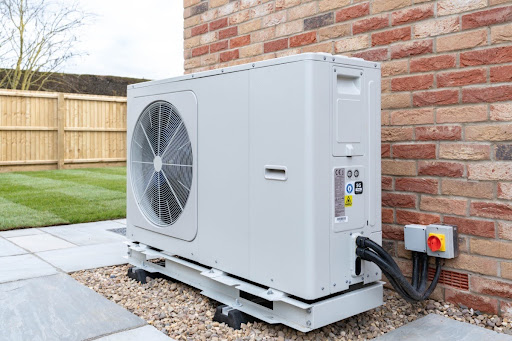As the days get longer and temperatures start to climb, many of us begin thinking about how to keep our homes cool and comfortable. Heat pumps are a popular choice because they offer both heating and cooling capabilities, making them a versatile option for year-round comfort. But did you know there’s a system that combines the efficiency of a heat pump with the power of a furnace? It’s called a dual-fuel HVAC system, and it might be the solution you’re looking for.
Let’s talk about what a dual-fuel HVAC system is and how to figure out if installing one makes sense for your home.
How Dual-Fuel HVAC Systems Work
A dual-fuel HVAC system, sometimes called a hybrid system, pairs an electric heat pump with a gas furnace. This combination allows the system to switch between electricity and gas, depending on which is more efficient given the current outdoor temperature.
Here’s how it works:
- Mild Temperatures: During cooler months like spring and fall, the heat pump handles heating duties by extracting warmth from the outside air and bringing it indoors.
- Colder Temperatures: When temperatures drop significantly, the system automatically switches to the gas furnace, which can provide more effective heating in frigid conditions.
- Summer Months: In warmer weather, the heat pump functions like a standard air conditioning system, removing heat from your home to keep it cool and comfortable.
This seamless transition between the heat pump and furnace ensures your home remains comfortable year-round without unnecessary energy consumption.
Advantages of a Dual-Fuel HVAC System
Investing in a dual-fuel system offers several benefits:
Energy Efficiency
One of the standout benefits of a dual-fuel system is its energy efficiency. By utilizing the heat pump during milder temperatures and reserving the gas furnace for colder days, the system reduces overall energy consumption. This strategic use of energy sources can lead to lower utility bills and a smaller carbon footprint.
Year-Round Comfort
With the ability to both heat and cool your home, a dual-fuel system offers consistent comfort throughout the year. The heat pump addresses cooling needs in the summer and provides warmth during transitional seasons, while the furnace ensures your home stays cozy during the coldest months.
Environmental Considerations
By optimizing the use of electricity and gas based on efficiency, dual-fuel systems contribute to energy conservation and can be more environmentally friendly compared to systems that rely solely on fossil fuels. This balance helps reduce your household’s overall carbon footprint.
Potential Drawbacks to Consider
While there are clear advantages, it’s important to consider potential downsides:
Initial Investment
While dual-fuel systems offer long-term savings on energy bills, they typically come with higher upfront costs due to the complexity of integrating both a heat pump and a furnace. It’s essential to weigh this initial investment against potential energy savings over time.
Maintenance Requirements
Maintaining a dual-fuel system involves servicing both the heat pump and the furnace components. This dual maintenance can lead to higher upkeep costs.
Space Considerations
Installing a dual-fuel system requires adequate space to accommodate both the heat pump and furnace. Homes with limited utility space may find this setup challenging.
Is a Dual-Fuel HVAC System Worth It?
Deciding if a dual-fuel system is right for your home depends on several factors:
- Climate: If you live in an area with mild winters, a heat pump alone might suffice. However, in regions where temperatures frequently drop below freezing, the addition of a furnace can provide the necessary heating power.
- Energy Costs: Evaluate the costs of electricity and gas in your area. If one is significantly cheaper, it could influence the cost-effectiveness of a dual-fuel system.
- Environmental Impact: For homeowners aiming to reduce their carbon footprint, the efficient energy use of a dual-fuel system can be appealing.
In essence, a dual-fuel HVAC system is worth it if you seek an energy-efficient solution that provides reliable comfort throughout the year, especially in regions with varying temperature extremes.
Making the Right Choice for Your Home
To recap: a dual-fuel HVAC system might sound high-tech, but it’s really just a smart, flexible solution that uses a heat pump and a gas furnace together. All in all, a dual-fuel HVAC system is worth it if you’re tired of choosing between comfort and cost.
Are you still wondering if it makes sense for your home? It helps to think about your climate, current system setup, and how much you’re spending on heating and cooling now. A dual-fuel HVAC system is worth it if you’re looking for more control, better performance during extreme weather, and long-term savings.
Ready to Upgrade? Talk to Our Experts in Midland, MI!
If you’re ready to make a smart home improvement that’ll keep your house comfortable, turn to All Seasons Heating & Cooling. We’ve been helping homeowners just like you since 1979.
We’re fully licensed and insured, and we take pride in providing 100% satisfaction with every job. Our team is highly experienced, and we believe in upfront pricing. Plus, we stand by our clean house guarantee, which means we leave your home just as tidy as we found it.
We offer year-round support for heating systems of all kinds. Contact us today to schedule a furnace or heat pump installation in Midland, MI, and get your home ready for whatever weather is heading your way!

